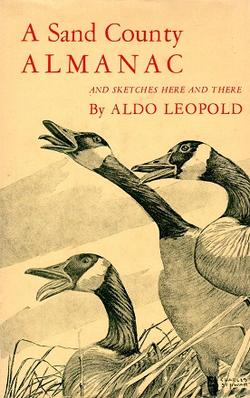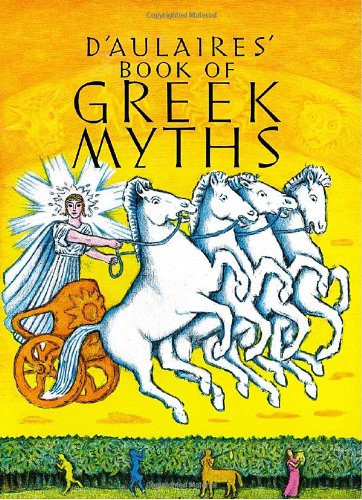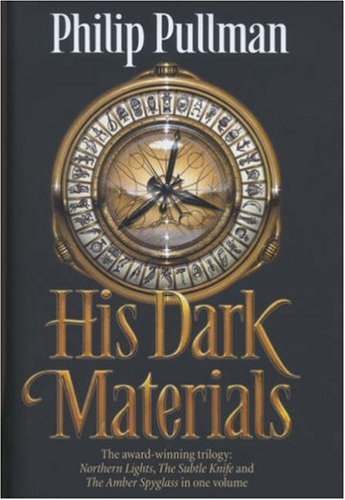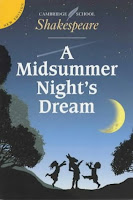 Top Ten Tuesday is a weekly meme hosted by the lovely folks at The Broke and The Bookish. This week's assignment is the top ten assigned reads. This one was hard because 1) I am a long way from my school days, 2) I don't belong to a book club and 3)... well... I'm the one usually forcing books on other people. So, I decided to go rogue and flip it - below is my top ten list of books I'd like to force other folks to read! Because obviously it should be all about me imposing my will upon the world:0) This is not just my list of favorite books. I tried to think about books that I wish would be taught in school - that I thought would be enjoyed by people in their teens and that would provoke thoughtful discussion. Some of them may be books I was forced to read in school but most are not and I only wish they had been assigned.
Top Ten Tuesday is a weekly meme hosted by the lovely folks at The Broke and The Bookish. This week's assignment is the top ten assigned reads. This one was hard because 1) I am a long way from my school days, 2) I don't belong to a book club and 3)... well... I'm the one usually forcing books on other people. So, I decided to go rogue and flip it - below is my top ten list of books I'd like to force other folks to read! Because obviously it should be all about me imposing my will upon the world:0) This is not just my list of favorite books. I tried to think about books that I wish would be taught in school - that I thought would be enjoyed by people in their teens and that would provoke thoughtful discussion. Some of them may be books I was forced to read in school but most are not and I only wish they had been assigned.
 A Sand County Almanac by Aldo Leopold
A Sand County Almanac by Aldo Leopold
In my non-bookish life, I am a wildlife biologist and I have a strong core belief in the innate value of the natural world and its necessity to our quality of life. Aldo Leopold was that rare scientist who was incredibly wise and also heart breakingly eloquent. He is considered the father of Wildlife Biology because he laid down the very foundation of how we view nature and he did it best, I think, in this book. A Sand County Almanac is a series of essays about the natural world; eloquent, clear and beautiful and (just as importantly) not too long. Written in the 1930's and 1940's it is also prescient. It contains his Land Ethic which states: "A thing is right when it tends to preserve the integrity, stability and beauty of the biotic community. It is wrong when it tends otherwise." Simple, clear and powerful. I can think of no better introduction to the value of the natural world and I think everyone, whether they wish to be a wildlife biologist or not should read at least part of it. As a series of essays, it would be easy for a teacher to assign pieces and lots of interesting discussion could be had. It could also be supported by getting folks outside and having their own encounters with nature.
 D'Aulaires' Book of Greek Myths
D'Aulaires' Book of Greek Myths
Growing up I LOVED Greek mythology and it was mostly because of this book. I never owned it but so constantly checked it out of the library that for a year or two it probably spent more time at my house than at the library. I read it at least a million times and I SWEAR that it is 100% responsible for my receiving an A+ in my college Greek Mythology class. The stories were etched into my brain. If assigned in school this would be most appropriate for younger kids (maybe 8-10 age range). It will hold their attention because of the fantastic artwork and the fact that the myths are a little bit racy and all kinds of dramatic (but not inappropriate for the age group, I don't think).Metamorphoses by Ovid
 His Dark Materials Trilogy by Philip Pullman
His Dark Materials Trilogy by Philip Pullman
This trilogy consisting of The Golden Compass, The Subtle Knife and The Amber Spyglass is an imaginative and engrossing adventure. But more than that, it is thoughtful and thought-provoking. It is an inverted re-telling of Milton's Paradise Lost and features a strong female lead character. Not to mention armored polar bears. I can see this being a controversial pick for reading in school but I think it would provoke much great discussion.
 Northanger Abbey by Jane Austen
Northanger Abbey by Jane Austen
Northanger Abbey is certainly not the strongest of Austen's books but I picked it for a few reasons. It features Austen's youngest protagonist which may appeal more to a teen audience. It is a parody of the classic Gothic novels which might provide food for lesson plans. And finally, frankly, I think Austen should not be consigned as fiction only for woman. Austen was an insightful and brilliant observer of human nature and the society of her time. Heck it might be interesting to have a discussion on why Austen's books and romances in general are thought appropriate only for females. A dude can read a romance and not die. I think.
 Never Let Me Go by Kazuo Ishiguro
Never Let Me Go by Kazuo Ishiguro
I was completely sucked into this amazing science fiction masterpiece. Boarding school setting and a plot driven by a mystery should make this an appealing read for young adults and again this is a book that provides a LOT of food for thought and discussion.  OR
OR 
I love Shakespeare and I do like Romeo and Juliet and understand why it seems to be the number one choice to be taught in school (at least in my experience) but it's a shame not to introduce Shakespeare as the truly fun guy he is. These are my two favorite Shakespeare comedies and rather than reading it solely, I think its best to see them performed. All students should be flown to London to see the Royal Shakespeare Company perform these two plays! That's doable, right? Maybe they should just act them out themselves:)
 To Kill A Mockingbird by Harper Lee
To Kill A Mockingbird by Harper Lee
I can't remember if I was required to read this in school but if I wasn't I should have been. It's a deservedly classic coming of age tale with a moral heart.
 All Quiet on The Western Front by Erich Maria Remarque
All Quiet on The Western Front by Erich Maria Remarque
I'm pretty sure I was not required to read this in school but I read it when I was young. I honestly don't remember many details about it, just the deep impression it had upon me. Unfortunately, the subject of war is one that should be addressed and discussed and fiction can provide a good path to the topic.
 Dracula by Bram Stoker
Dracula by Bram Stoker
A highly readable classic horror story. Why not take advantage of the current cache` of vampires and assign this to a class and then compare and contrast with the modern view of the monsters. What do vampires represent? Has their meaning changed through time? Why are they so creepy/scary and so alluring at the same time? Lots of good discussion.I think I'll stop there, now that I've made a good case why I should never be allowed anywhere near a classroom! Or young people. It's been fun though! What books would you add to the list?
Oh man His Dark Materials should definitely be taught in schools! Of course living in the Bible Belt people would probably burn the school down before allowing that, but I can dream that some day everyone will read this trilogy.
ReplyDeleteThe Greek myths obsession started with an Avi picture book of all the gods and goddesses (Artemis has always been my favourite. In 4th grade I named our camper Artemis which is a rather unsuited name as campers are not particularly graceful looking cars and now I've used the name up *scowls*)
And yes so much to your reasoning behind Jane Austen! I would be happy to see any Jane Austen on required reading! Except maybe Emma because that one's hard to get into and would likely turn people away from trying her other books first (I don't hate Emma...but I'm definitely only plodding through it because I love all her other books so much)
Ha Ha! Yes, I definitely think HDM would be a hard sell for classrooms but it shouldn't be. Folks shouldn't be afraid of thinking and discussion. But not everyone sees it that way.
DeleteSo glad to meet someone else with the Greek Mythology love! I was pretty fond of Artemis as well but I think mischievous Hermes was my favorite. I think you could probably re-use Artemis as a vehicle name:)
So what's your favorite Austen? Mine is Sense and Sensibility because I like the sense vs. sensibility argument and the feeling I get that Austen wasn't completely convinced by her own message. I wish there were more of her books to read!
P&P will always be my favourite, although Persuasion is a close runner up. I've never really been into Sense and Sensibility (well, as in I thoroughly enjoyed it, because come on, Jane Austen, I just don't fangirl over it)...it always felt like a sillier P&P, but then I haven't read it since high school. The school's still out on Northanger Abbey which I still haven't read, but I've enjoyed all the others even if Emma was terribly difficult to like!
DeleteThough I'm not much of a scientist, what you said about the innate value of the natural world was very well put and spot on. You've got a great list here - I particularly love how you suggested contrasting Dracula with all the current vampire trend. I have to admit I've never read it, but I'm thinking I probably should! God knows I've exposed myself (both willingly and not so willingly) to way too much vampy pop culture!
ReplyDelete:) The vampire is pretty well impossible to avoid these days!
DeleteYou know, I didn't read Dracula until I was doing my student teaching, and I read it within the context of the Victorian period in England. Through that lens, it was so awesome.
ReplyDeleteI dig most things Victorian and Gothic. Vampires were also my "favorite" (i.e. the monster I was most afraid of) monster as a kid. I was destined to enjoy it.
DeleteI loath to kill a mockingbird. Maybe because I was forced to read it three times in school. Just wasn't a fan. :/
ReplyDeleteGreat picks tho! I see a few I'd like to read.
I imagined that To Kill A Mockingbird was perhaps the one novel that could avoid the forced read = hate conundrum...that and Huck Finn but of course that's silly. A forced read is a forced read so maybe I shouldn't want the books on my list foisted upon classes because then I'd just be encouraging folks to be resentful of them! Sorry it didn't click with you.
DeleteThanks for stopping by!